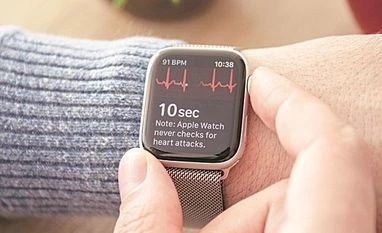Digital trials drive new technologies in health care
Just as the ECG sensor on your health app uses electrical sensors on the back of the wearable wristband to measure heart health, EEG sensors embedded in ear buds can measure brain health
)
Explore Business Standard

Associate Sponsors
Co-sponsor
Just as the ECG sensor on your health app uses electrical sensors on the back of the wearable wristband to measure heart health, EEG sensors embedded in ear buds can measure brain health
)
Already subscribed? Log in
Subscribe to read the full story →

3 Months
₹300/Month
1 Year
₹225/Month
Renews automatically, cancel anytime

Over 30 premium stories daily, handpicked by our editors



News, Games, Cooking, Audio, Wirecutter & The Athletic

Digital replica of our daily newspaper — with options to read, save, and share



Insights on markets, finance, politics, tech, and more delivered to your inbox

In-depth market analysis & insights with access to The Smart Investor



Repository of articles and publications dating back to 1997

Uninterrupted reading experience with no advertisements



Access Business Standard across devices — mobile, tablet, or PC, via web or app
First Published: Jan 22 2023 | 6:36 PM IST